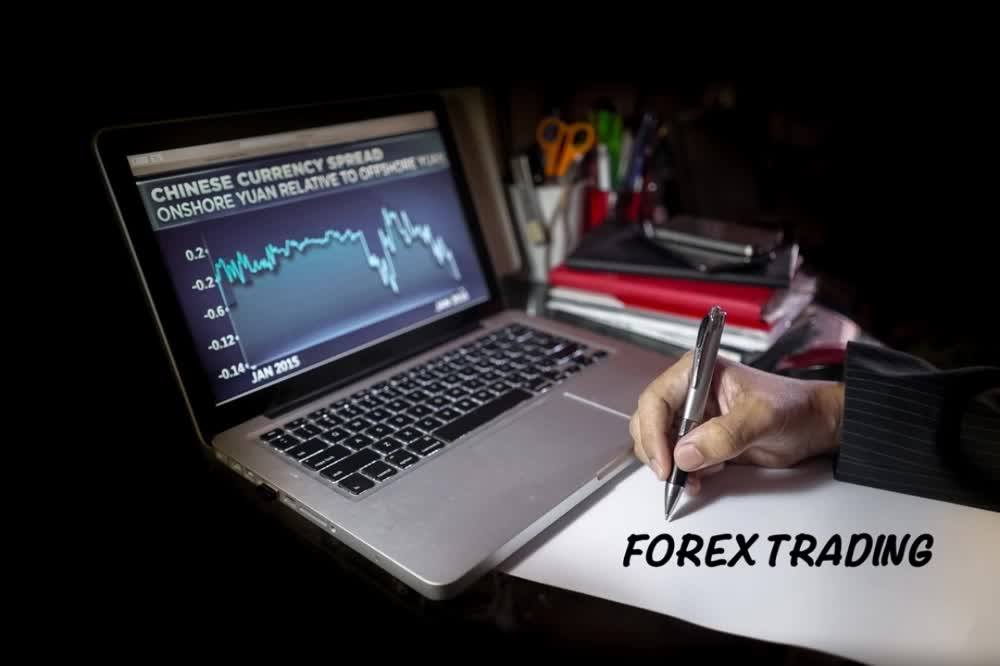The foreign exchange market is the generic term for the worldwide institutions that exist to exchange currencies. Foreign exchange is often referred to as “Forex” or “FX.” The foreign exchange market is an over-the-counter (OTC) market, which means there is no central exchange and clearinghouse where orders are matched. FX dealers and market makers around the world are linked to each other around the clock via telephone, computer, and fax, creating one cohesive market.
Over the past few years currencies have become one of the most popular products to trade. No other market can claim a 71 percent surge in volume over the a three-year time frame. According to Triennial Central Bank Survey of the foreign exchange market conducted by Bank for International Settlements and published in October 2007, daily trading volume hit a record of $3.2 trillion, up from $1.9 trillion in 2004. This is estimated to be approximately 20 times larger than the daily trading volumes of New York Stock Exchange and the Nasdaq combined.
Advantages of Online Currency Forex Trading
The volume and liquidity present in the FX market, one of the most liquid markets in the world, have allowed traders to access a 24-hour market with low transaction costs, high leverage, the ability to profit in both bull and bear markets, minimized error rates, limited slippage, and no trading curbs. Traders can implement in the FX market the same strategies that they use in analyzing the equity markets.
Around-the-clock 24-Hour Market:
One of the primary reasons why the FX market is popular is because for active traders it is the ideal market to trade. Its 24-hour nature offers instant access to the markets at all hours of the day for immediate response to global developments. This characteristic gives traders the added flexibility of determining their trading day.
In addition, most people who want to trade also have a full-time job during the day. The ability to trade after hours makes the FX market a much more convenient market for all traders. Different times of the day will offer different trading opportunities as the global financial centers around the world are all actively involved in foreign exchange.
Low Transaction Costs:
The existence of lower transaction costs also makes the FX market particularly attractive. In the equities market, traders must pay a spread (i.e. the difference between the buy and sell price) and/or commission. The over-the-counter structure of the FX market eliminates exchange and clearing fees, which in turn lowers transaction costs. Costs are further reduced by the efficiencies created by purely electronic market place that allows clients to deal directly with the market maker, eliminating both ticket costs and middlemen.
Lower transaction costs make online FX trading the best market to trade for short-term traders.
Customizable Leverage:
Even though many people realize that higher leverage comes with risks, few traders find it easy to turn away the opportunity to trade on someone else’s money. The FX market caters perfectly to these traders by offering the highest leverage available for any market. This is very useful to short-term day traders who need the enhancement in capital generate quick returns. Leverage is actually customizable, which means that more risk-averse investor who feels comfortable using only 10 or 20 times leverage at all can elect to do so. However, leverage is really double-edged sword. Without proper risk management a higher degree of leverage can lead to large losses as well.
Profit in Both Bull and Bear Markets:
In the FX market, profit potential exist in both bull and bear markets. Since currency trading always involves buying one currency and selling another, there is no structural bias to the market. Therefore, if you are long one currency, you are also short another. As a result, profit potential exists equally in both upward-trending and downward-trending markets. This is different from the equities market, where most traders go long instead of short stocks, so the general equity investment community tends to suffer in bear market.
No Trading Curbs:
The FX market is the largest market in the world, forcing market makers to offer very competitive prices. Unlike equities market, there is never a time in the FX markets when trading curbs would take effect and trading would be halted, only to gap when reopened. This eliminates missed profits due to archaic exchange regulations. In the FX markets, traders would be able to place trades 24 hours a day with virtually no disruptions.
Online Trading Reduces Error Rates:
In general, a short trade process eliminates errors. Online currency trading is typically a three-step process. A trader would place an order on the platform, the FX dealing desk would automatically execute it electronically, and the order confirmation would be logged on the trader’s trading station. Typically, these three steps would be completed in a matter of seconds.
Limited Slippage:
Unlike the equity markets, many online FX market makers provide instantaneous execution from real-time, two-way quotes. These quotes are the prices at which the firms are willing to buy or sell the quoted currency, rather than vague indication of where the market is trading, which aren’t honored. Orders are executed and confirmed within seconds. Robust systems would never request the size of a trader’s potential order, or which side of the market he is trading. The price transparency provided by some of the better FX market makers ensures that traders always receive a fair price.
With many advantages just described, online currency trading is the best investment market to be in to make money online. If you believe you have what it takes to trade foreign currencies, don’t be afraid, learn more today and get started as soon as possible.


